Eroticism is assenting to life even in death
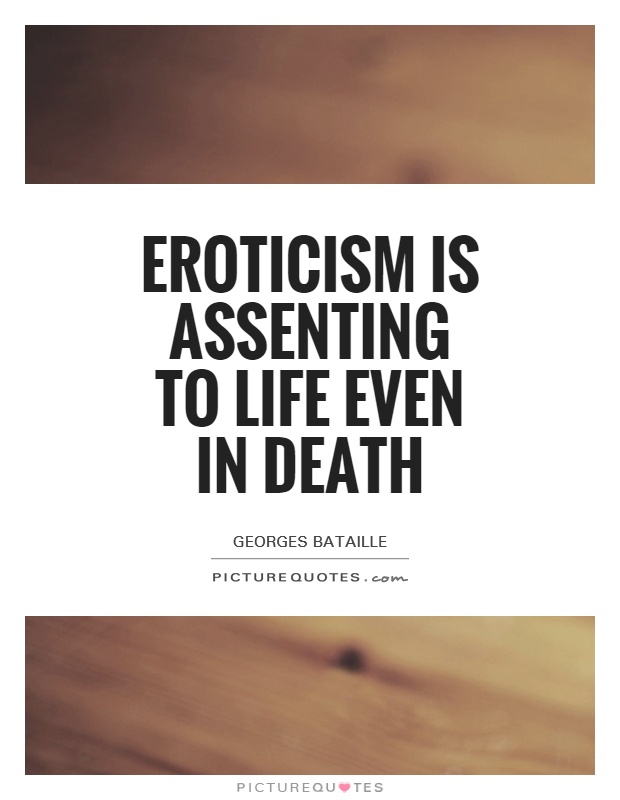
Eroticism is assenting to life even in death
Georges Bataille, a French writer and philosopher, is known for his exploration of taboo subjects such as eroticism, death, and the limits of human experience. In his work, Bataille often delves into the darker aspects of human existence, pushing the boundaries of what is considered acceptable or moral. One of his most famous quotes, "Eroticism is assenting to life even in death," encapsulates his belief that the erotic impulse is a fundamental part of human nature, one that transcends the boundaries of life and death.For Bataille, eroticism is not just about sexual desire or pleasure, but a deeper, more primal force that drives human beings to seek connection and transcendence. In his book "Erotism: Death and Sensuality," Bataille explores the ways in which eroticism is intertwined with death, arguing that the two are intimately linked in the human experience. He suggests that the erotic impulse is a response to the awareness of our own mortality, a way of affirming life in the face of death.
In Bataille's view, the erotic impulse is a form of rebellion against the constraints of society and the limitations of the rational mind. It is a way of embracing the chaos and uncertainty of existence, of surrendering to the primal forces that lie beneath the surface of our civilized selves. By assenting to life even in death, Bataille suggests that we can find a deeper connection to our own humanity, a way of transcending the limitations of our mortal bodies and embracing the fullness of our existence.
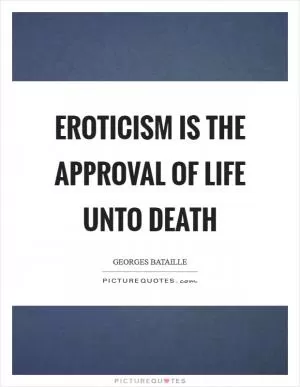




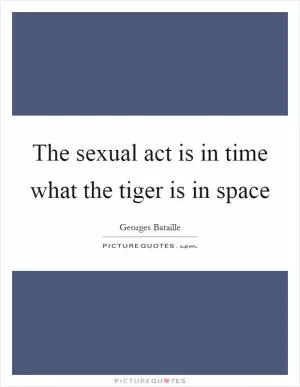
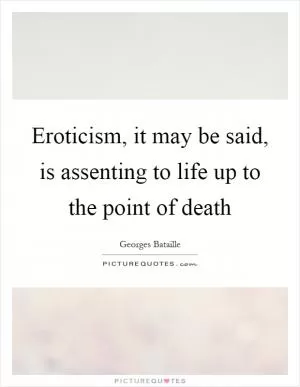

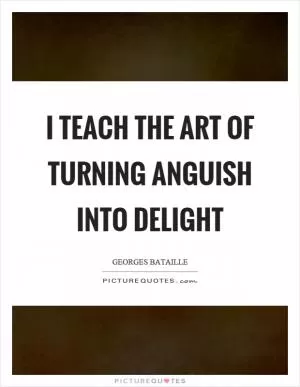
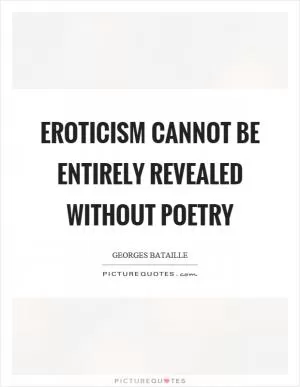


 Friendship Quotes
Friendship Quotes Love Quotes
Love Quotes Life Quotes
Life Quotes Funny Quotes
Funny Quotes Motivational Quotes
Motivational Quotes Inspirational Quotes
Inspirational Quotes